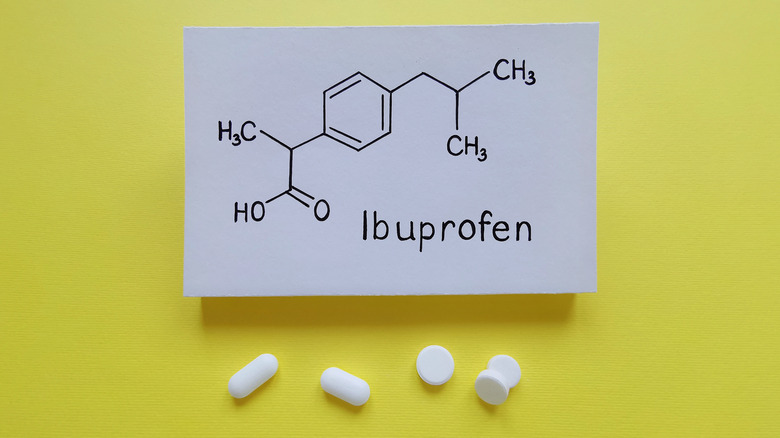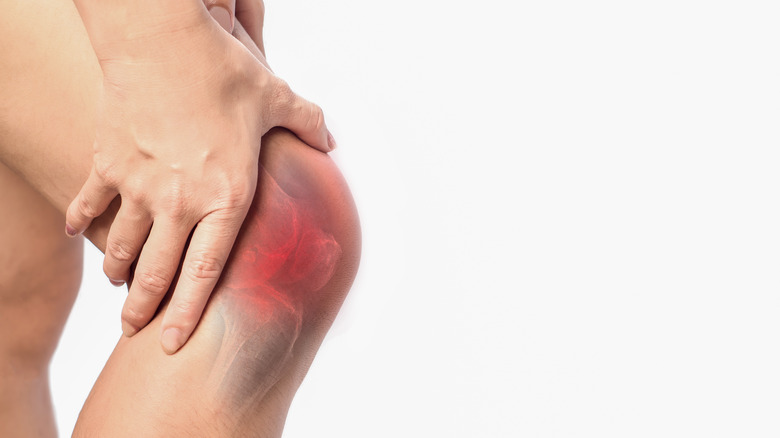Does Ibuprofen Reduce Swelling?
Ibuprofen is classified as a nonsteroidal anti-inflammatory (NSAID) medication and is used to treat a whole host of symptoms such as joint pain, headaches, inflammation, fevers, and more. It is a common staple in all drug stores and can be found under various brand names including but not limited to Advil and Motrin.
Most NSAIDs on the market today aim to target an enzyme referred to as cyclooxygenase (COX) (via Verywell Health). The COX enzyme plays a major role in the formation of prostaglandins, prostacyclins, and thromboxanes, all elements which worsen a body's inflammatory response. Thus by inhibiting these enzymes, NSAIDs can help reduce overall inflammation throughout the body.
While pharmacology has evolved, Ibuprofen remains an "older" NSAID and is referred to as a non-selective COX inhibitor, meaning it will inhibit COX-1 and COX-2 enzymes. While this may help reduce inflammation, not being a selective COX inhibitor comes with the potential risk for increased side effects, such as gastrointestinal bleeding and ulcers.
Ibuprofen is an effective medication which can indeed reduce both inflammation and swelling. Thus if a person's swelling is caused by inflammation, ibuprofen is a good choice for symptoms relief and treatment. But what is the difference between swelling and inflammation?
Ibuprofen can reduce swelling caused by inflammation
Often used interchangeably, the terms inflammation and swelling do indeed have different meanings. Inflammation is a result of the body's immune system being "turned on," usually by a foreign pathogen or an injury (via Cleveland Clinic). While inflammation can lead to swelling of a particular joint, organ, or lymph node, swelling can also occur without inflammation.
For example, lower leg and ankle swelling is commonly seen in older individuals. This swelling is not due to inflammation but rather due to the inability of the veins to pump blood back up to the heart, something known as venous insufficiency (via Johns Hopkins Medicine). Taking ibuprofen for this type of swelling will not reduce the swelling at all, as inflammation is not the underlying cause.
Now let's say an athlete falls on their knee during a game. That injury will trigger an inflammatory response which will lead to the knee swelling. Ibuprofen taken for this injury will help to reduce both the inflammation and swelling. So while ibuprofen is effective at reducing inflammation and some causes of swelling, being able to identify the underlying cause is most important.


